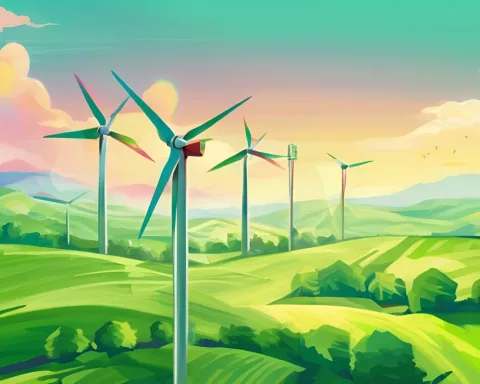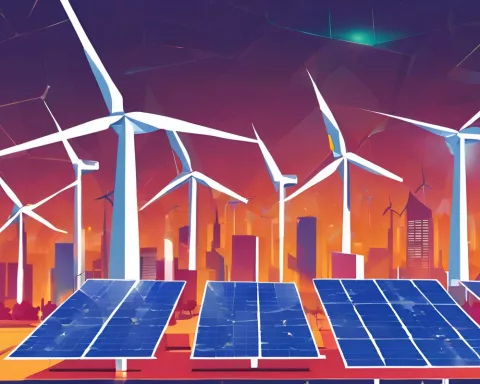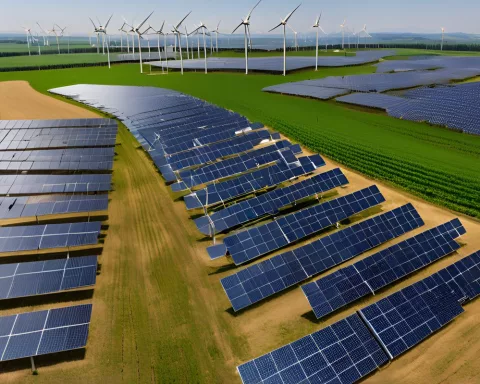Growthpoint Properties, in partnership with licensed electricity trader Etana Energy, has made a significant achievement in Cape Town’s energy grid by wheeling renewable electricity. This pioneering move is a step towards utilizing clean, green energy and providing greater access to affordable renewable energy sources, ultimately contributing to resolving the nation’s energy crisis.
Wheeling Renewable Electricity
Wheeling is a process through which private parties buy and sell electricity, using the existing grid to transport power from where it is generated to remote end-users. As part of Cape Town’s wheeling pilot project, solar energy generated at Growthpoint’s The Constantia Village shopping center is being exported into the city’s electricity grid for use at Growthpoint’s 36 Hans Strijdom office building, housing Investec and Ninety One.
Etana Energy’s Involvement
Etana Energy was selected as a participant in the city’s six-month pilot project, which involves 15 wheeling participants representing 25 generators and 40 customers. The insights gained from this pilot will lay the groundwork for future wheeling initiatives in Cape Town and will allow businesses to optimize solar capacity across multiple locations.
Cape Town’s Ambitious Plans
Cape Town’s Mayor, Geordin Hill-Lewis, has big plans for the city, stating that “Cape Town is planning to add up to one gigawatt of independent power to end load-shedding in the city over time.” He anticipates that wheeling will contribute up to 350 MW to the grid in the future. The pioneering private sector players have successfully wheeled the first electrons, paving the way for further development in this area.
Growthpoint Properties’ Climate Commitment
This landmark initiative aligns with Growthpoint Properties’ climate commitment to achieving carbon neutrality by 2050. Growthpoint Properties aims to provide clean, green energy to its Cape Town tenants, and this project is a starting point for achieving this goal.
Cape Town’s ‘End Load-Shedding’ Plans
Cape Town’s ‘end load-shedding’ plans encompass a diverse range of initiatives, including wheeling electricity, partnering with independent power producers, paying households and businesses ‘Cash for Power’ generated by solar PV, launching the ‘Power Heroes’ incentive scheme to encourage households to reduce energy demand, and establishing solar PV farms. The city aims to test and validate the contracting framework and billing engine for full-scale implementation through the wheeling pilot.
Setting an Example for Sustainable Energy Consumption
As a result of this initiative, Growthpoint will be able to wheel clean energy to all its buildings in Cape Town in the future, setting an example for other cities to follow in embracing renewable energy sources and innovative solutions for sustainable energy consumption. Reyburn Hendricks, Director of Etana Energy, expressed his enthusiasm, stating that allowing the wheeling of electricity to municipal-connected customers will accelerate Etana’s mission of bringing much-needed new renewable energy generation onto the grid in South Africa.












